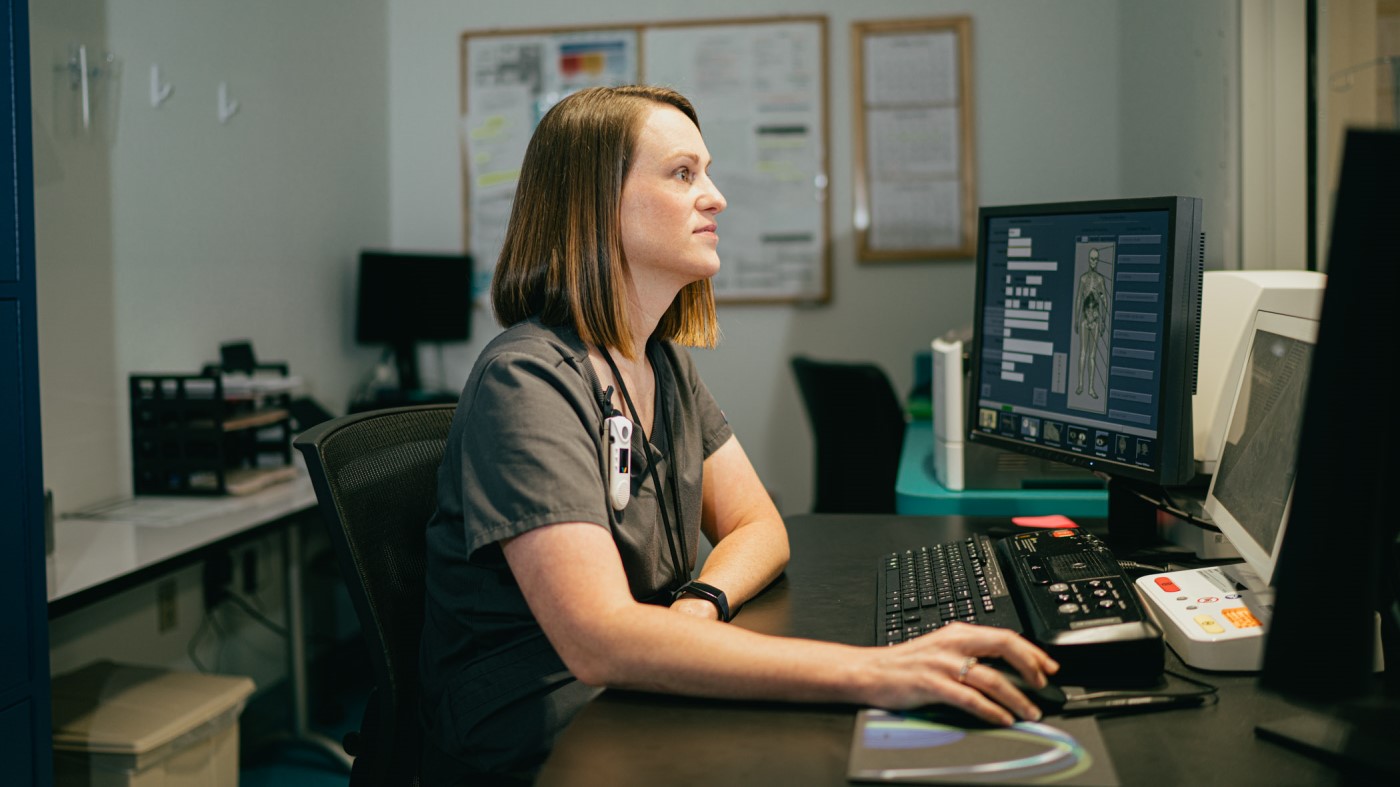At VA, we have been investing in new ways to provide telehealth care to our Veterans for years.
When the world went virtual during the height of the COVID-19 pandemic, many employers adopted a new way of doing business out of necessity, but we had a network in place that quickly and easily adapted to the changes going on around us.
Forward thinking
In 2017, VA announced a new initiative called “Anywhere to Anywhere VA Health Care,” which laid the groundwork for interstate telemedicine between VA providers and patients. Further efforts that were developed as part of the initiative included expanding telehealth opportunities to remote clinics and call centers, as well as developing VA telehealth access points.
The effort was designed as an outreach measure, but also developed with an eye toward using telehealth during disasters. The VA Telehealth Emergency Management Team was established in response to Hurricanes Harvey and Maria in 2017, though the COVID-19 pandemic triggered a rapid expansion in telehealth services.
“I like to say that we met our five-year goals for telehealth in the first month of the pandemic, and we’re not looking back,” shared Dr. Neil Evans, chief officer for our Office of Connected Care. “Connected Care is, and will remain, a critical part of how VA is able to care for the Veterans we serve.”
Still looking ahead
The world has significantly changed since COVID-19 came on the scene, and VA has changed as well. Continued investment in our telehealth services will allow us to maintain the broad spectrum of clinical care we’ve developed with our Veterans. Meanwhile, expanding our telehealth operations will offer care to even more patients, which in turn means more job opportunities.
In April, VA opened a new Clinical Resource Hub (CRH) in Boise, Idaho – the first facility of its kind in our network. The CRH will serve as a space for VA staff treating Veterans via telehealth and accommodates over 200 staff members, including physicians, advanced practice providers, psychologists, social workers, nurses, schedulers, pharmacists, technicians and administrative support.
Supporting the systems that provide for Veterans is a necessity of enhancing our telehealth networks, too. Program specialists provide critical operational management and the technical know-how to maintain clinical telehealth operations at our facilities, ensuring that we can reach out to Veterans smoothly and efficiently.
A career with benefits
At VA, you and your dedicated colleagues are rewarded with a strong support system. A VA career offers you a balanced, flexible work environment and benefits focused on your unique needs.
- Competitive starting salaries. We offer our employees strong starting salaries based on education, training and experience. We also offer steady growth, with periodic pay raises that address inflation and local market changes.
- Flexible schedules. Our employees receive 13 to 26 paid vacation/personal days, as well as 13 sick days annually with no limit on accumulation, and we celebrate 11 paid federal holidays each year.
- Robust insurance options. You can choose from a variety of health maintenance organizations or fee-for-service health plans, and all cover preexisting conditions. Additionally, we pay up to 75% of health premiums, a benefit that can continue into retirement.
Work at VA
As we continue to evolve how we care for Veterans, careers in telehealth are a great way join our team in a variety of fields.
- READ about our investments in telehealth opportunities.
- LEARN more about our telehealth programs.
- EXPLORE telehealth careers at VA.
- SEARCH for a job near you at VACareers.va.gov.
Topics in this story
More Stories
If you’re looking for an opportunity to provide care to Veterans outside a traditional clinical setting, Home Based Primary Care (HBPC) is a great option.
A key part of your job search is finding the right fit for you and your skills, and workplace culture can impact that dramatically.
VA offers numerous pathways into mental health careers, including scholarship opportunities for college students. Learn more.







This sounds like a great opportunity.
If the shot requirement were not there, the VA jobs would be much more appealing.
Word.
Investing in telehealth if done the right way will have an impact in the health care system. It is a plus to the VA health care delivery system. One of the biggest optimistic impacts will be “decongestion” of the VA in person care delivery. The problem how to prioritize care delivery in a telehealth system? return on Investment in telehealth needs to be evaluated and measured. We need to see a cost-effective health care in comparison. An investment in any health care system requires consideration about the effective use of resources along with having the knowledge and skills to maintain evaluation strategies. These actions help with the ins and outs of showing cost-effectiveness, cost-benefit, and efficiency factors associated with nursing practice. One foresight for my future work as an advanced practice nurse to provide primary care services in a rural area without a physician. This compels the need to focus on key areas that are needed to make sure the veteran is treated equitably. This means understanding insurance programs like to cover telehealth visit. There will be a need to address the issue of VA possible hospitals closures requiring a dependable line of funding for vital health services. In other words, for the latter, if there are not enough patients to substantiate and make fundamental services feasible, there has to be a way to offset the costs (Frakt, 2019). The operating budget is an area the requires attention to be alert to remain balanced or on top when it comes to revenues and expenses (Mueller & Karsten, 2012) in the VA health care system. Questions such as: Who can be called on to assist with specific funding in rural areas? Should there be a pool that is funded that will cover certain services for a population, instead of there being a fee-for-service? What programs are available for mitigating financial difficulties that are already prevalent?
Eddy, MBA,MSN,RN